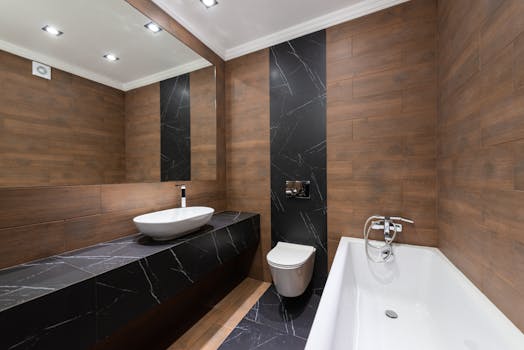
Image by Max Vakhtbovycn on Pexels
Common Plumbing Issues in Brighton Homes: Understanding and Fixing Common Problems
As a homeowner, having reliable plumbing services is crucial for maintaining a comfortable living space. However, common plumbing issues can arise unexpectedly, causing inconvenience and disrupting daily life. In this comprehensive guide, we will explore the most frequent problems affecting homes in Brighton, along with DIY tips, when to call professionals, and expert solutions from Fix-It Right Plumbing.
Hypertrophic Drainage: The Silent Killer
One of the most common plumbing issues is clogged drains. A clog can occur due to a buildup of grease, hair, and other debris, which can cause water to back up into pipes. This can lead to sewage backups, flooding, and even structural damage to your home. To avoid these problems, it's essential to clean your drains regularly using a drain snake or plumber's auger.
To ensure optimal drainage, consider the following:
- Regularly check for signs of clogs, such as slow draining or unusual odors
- Use a drain screen to catch hair and other debris before they enter pipes
- Avoid pouring grease and oils down sinks and drains
Hosepipe Clamp: A Hidden Hazard
Another common issue is hosepipe clamp failure. This occurs when the rubber gasket in the pipe connecting the water supply line to the main tank is damaged, allowing water to leak into the house.
To avoid this problem:
- Regularly inspect hoses for signs of wear and tear
- Check the clamp regularly for damage or signs of corrosion
- Consider replacing the hosepipe clamp every 5-7 years or when it shows any signs of weakness
Low Water Pressure: The Symptoms Are Real
A decrease in water pressure can be caused by various factors, including mineral buildup, dirty pipes, and faulty fixtures. This can lead to wasted water, reduced efficiency in appliances, and even damage to your home's foundation.
To diagnose the cause of low water pressure:
- Check for signs of mineral buildup, such as white residue on walls or ceilings
- Inspect pipes and fixtures for blockages or corrosion
- Consider replacing old or corroded pipes with new ones
When Low Water Pressure Strikes
In cases where low water pressure persists, it may be necessary to call a professional plumber. At Fix-It Right Plumbing, our team of experts will diagnose the issue and recommend solutions tailored to your specific needs.
Call Professionals:
If you're experiencing any of the following symptoms, it's best to contact a professional plumber:
- Decreased water pressure that persists despite regular maintenance
- Unusual noises or leaks from pipes or fixtures
- Water damage or flooding
Benefits of Calling Fix-It Right Plumbing
At Fix-It Right Plumbing, we pride ourselves on our exceptional customer service and commitment to solving your plumbing problems efficiently. Our team is dedicated to providing reliable solutions, tailored to your specific needs, with the highest level of expertise.
DIY Tips:
If you're feeling adventurous and want to tackle some DIY projects, here are a few tips to get you started:
- Use a plunger to unclog drains and pipes
- Check and replace water filters regularly
- Inspect and clean pipes regularly
Fix-It Right Plumbing Expert Solutions
In cases where professional assistance is required, Fix-It Right Plumbing is the go-to expert for reliable plumbing services in Brighton. With their extensive knowledge and experience, they will diagnose your issue with ease and provide a comprehensive solution.
When to Call Professionals:
If you're experiencing any of the following symptoms, it's best to contact a professional plumber:
- Decreased water pressure that persists despite regular maintenance
- Unusual noises or leaks from pipes or fixtures
- Water damage or flooding
Contact Fix-It Right Plumbing today at https://www.fixitrightplumbing.com.au/plumber-brighton/ for expert solutions and peace of mind.
Frequently Asked Questions
Q: What causes frequent plumbing issues in homes?
A: Frequent plumbing issues can be caused by a buildup of grease, hair, and other debris in drains, faulty fixtures, or worn-out pipes.
Q: How do I prevent clogged drains?
A: Regularly check for signs of clogs, use a drain screen to catch hair and debris before they enter pipes, and avoid pouring grease and oils down sinks and drains.
Q: What causes low water pressure?
A: Low water pressure can be caused by mineral buildup, dirty pipes, or faulty fixtures. Consider replacing old or corroded pipes with new ones, and check for signs of wear and tear on hoses.
Q: Can I fix my own plumbing issues without calling a professional?
A: While it's possible to tackle some DIY projects, if you're unsure about your abilities or the severity of the issue, it's best to call a professional plumber.
